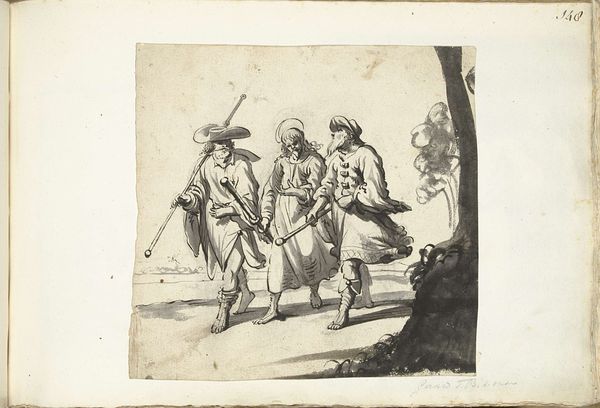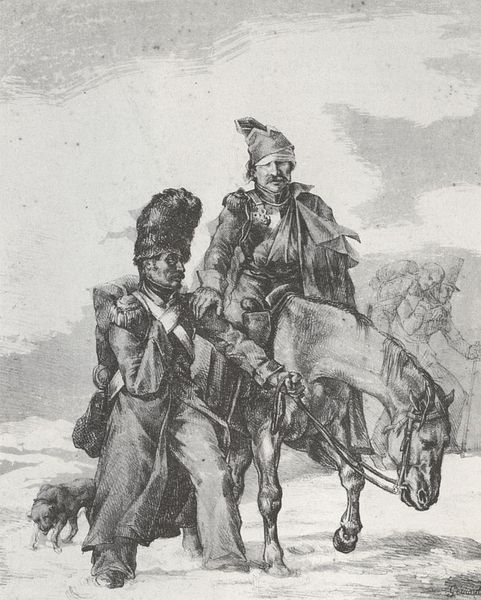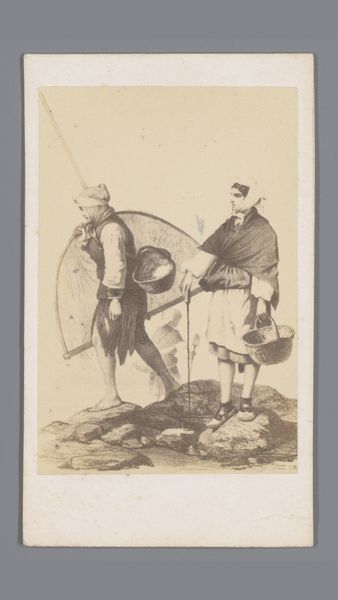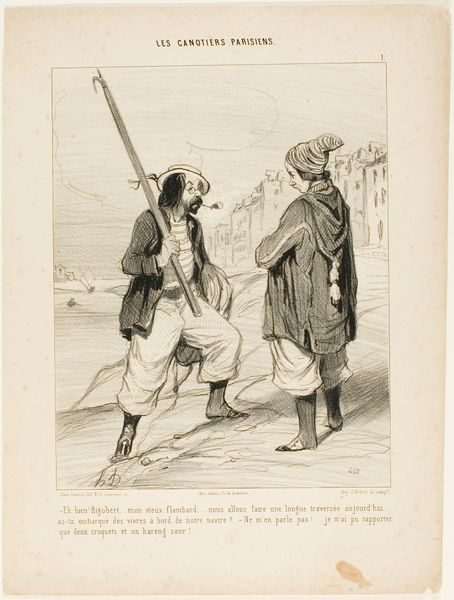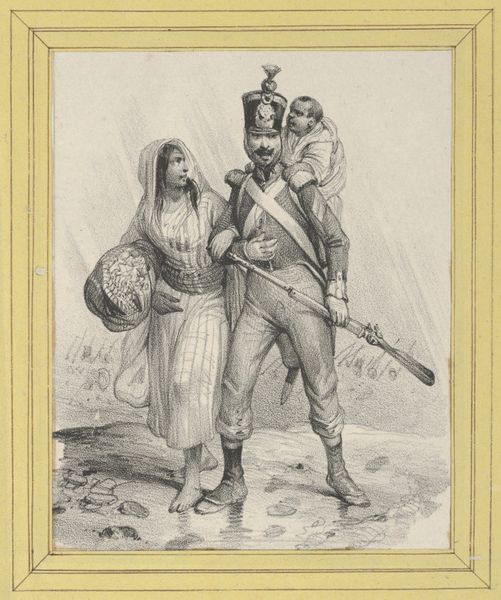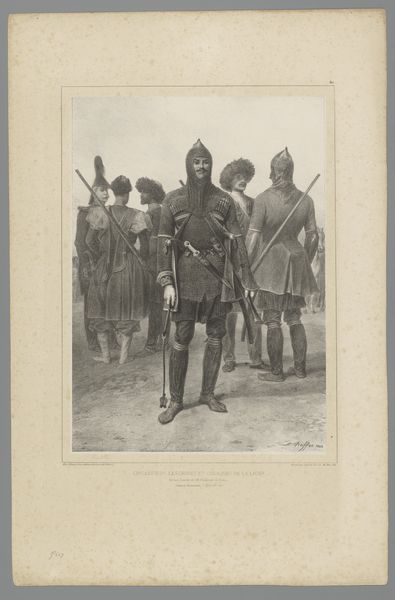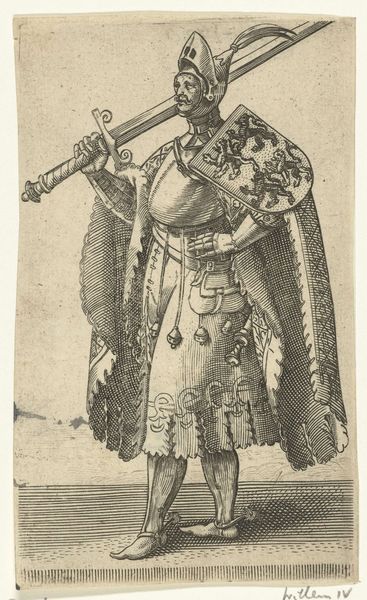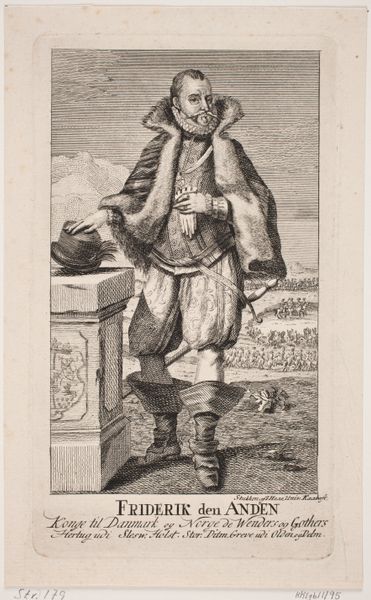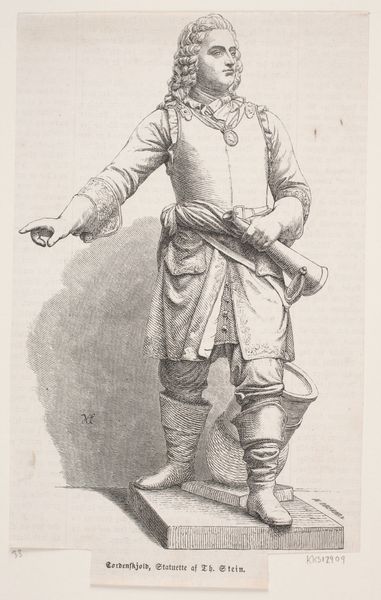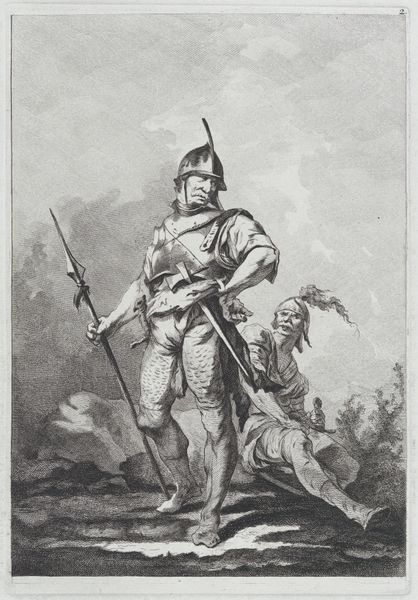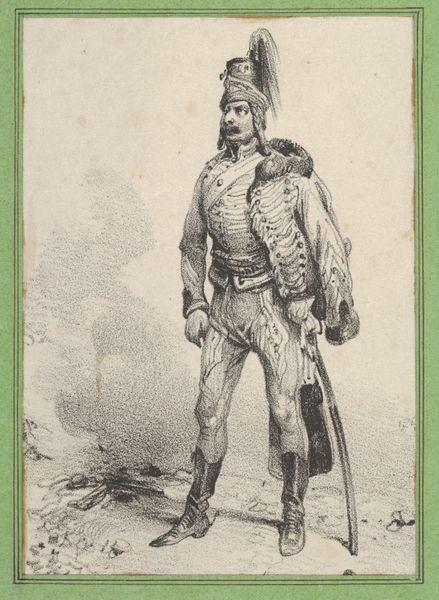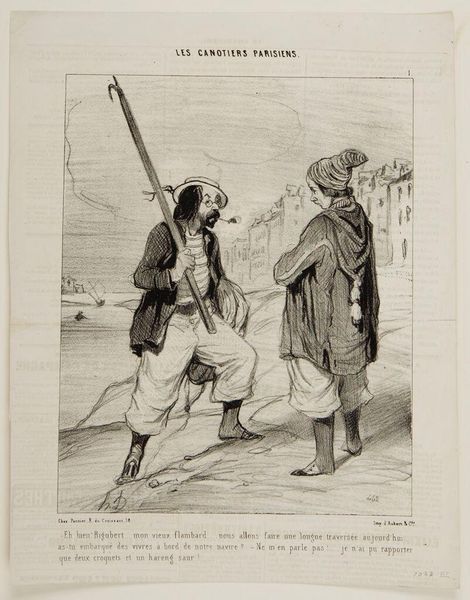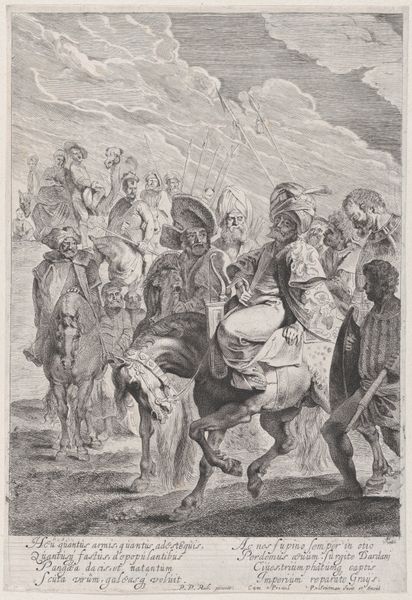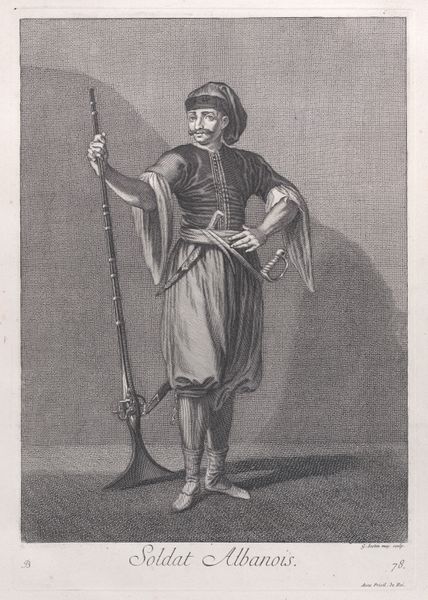
drawing, lithograph, print
#
portrait
#
pencil drawn
#
drawing
#
light pencil work
#
16_19th-century
#
lithograph
# print
#
pencil sketch
#
figuration
#
pencil drawing
#
19th century
#
line
#
islamic-art
#
pencil work
#
genre-painting
#
history-painting
#
realism
Dimensions: image: 25.6 x 18.1 cm (10 1/16 x 7 1/8 in.) sheet: 44.6 x 32 cm (17 9/16 x 12 5/8 in.)
Copyright: National Gallery of Art: CC0 1.0
Alexandre Bida made this lithograph, Arnautes, Égypte, sometime in the 19th century. It's a print, made by drawing on a flat stone with a greasy crayon, then treating the surface so that ink adheres only to the drawn areas. It’s a relatively direct printing process, capable of capturing fine detail. Here, that method has been used to render the textures and forms of the figures' clothing, weapons, and faces, emphasizing their cultural otherness from a European point of view. The print medium itself is significant; it allowed Bida to circulate these images widely, feeding a growing European fascination with the Middle East and North Africa, and establishing stereotypes. Note the way the lithographic process allows Bida to convey the sheen of metal, the crispness of the pleated skirts, and the soft shadows of the desert. The very act of printing, a form of mechanical reproduction, mirrors the colonial gaze, transforming individuals into reproducible images for consumption. Ultimately, this artwork demonstrates how materials and making processes are tied to wider social issues of labor, politics, and consumption.
Comments
No comments
Be the first to comment and join the conversation on the ultimate creative platform.
